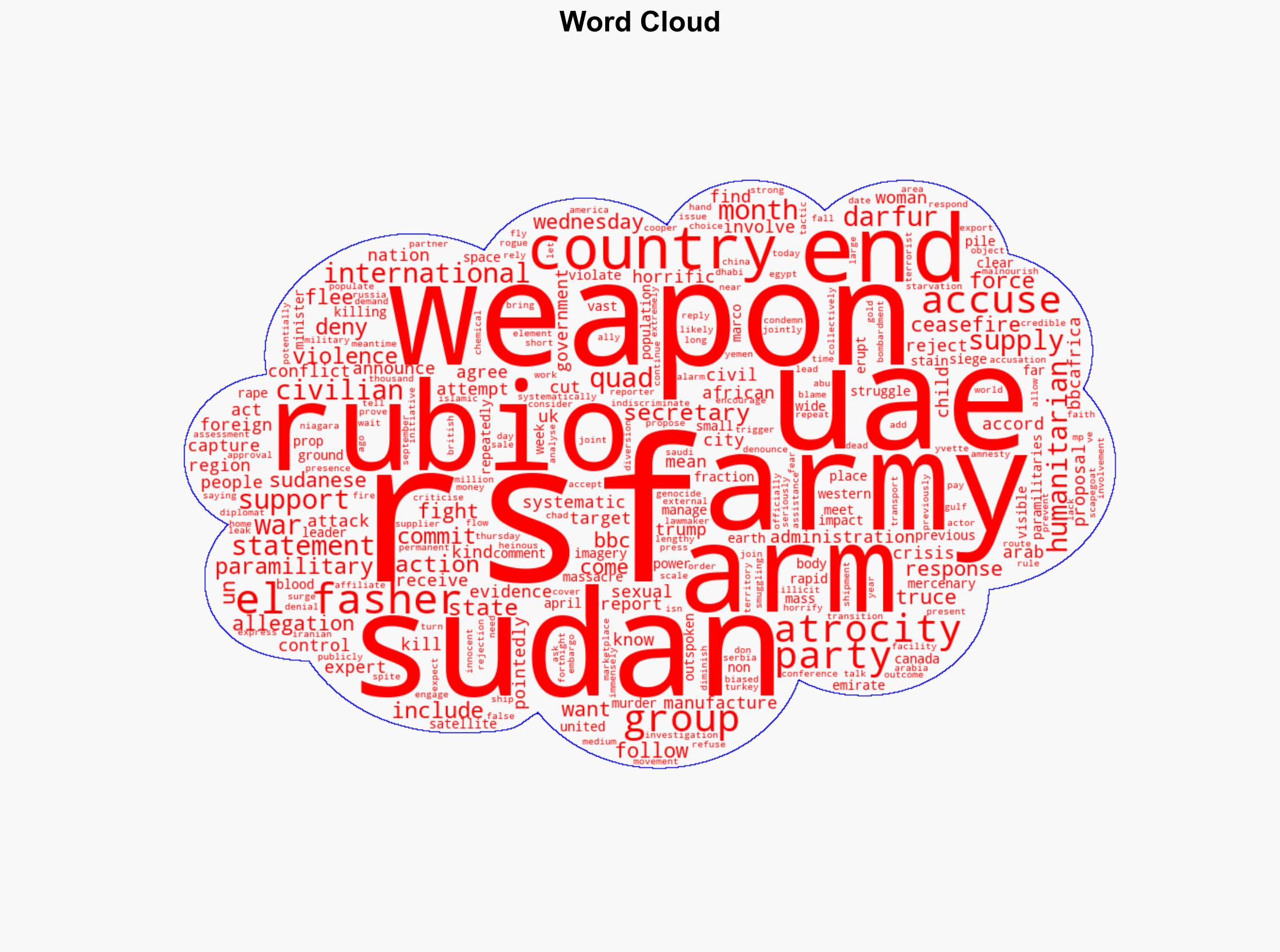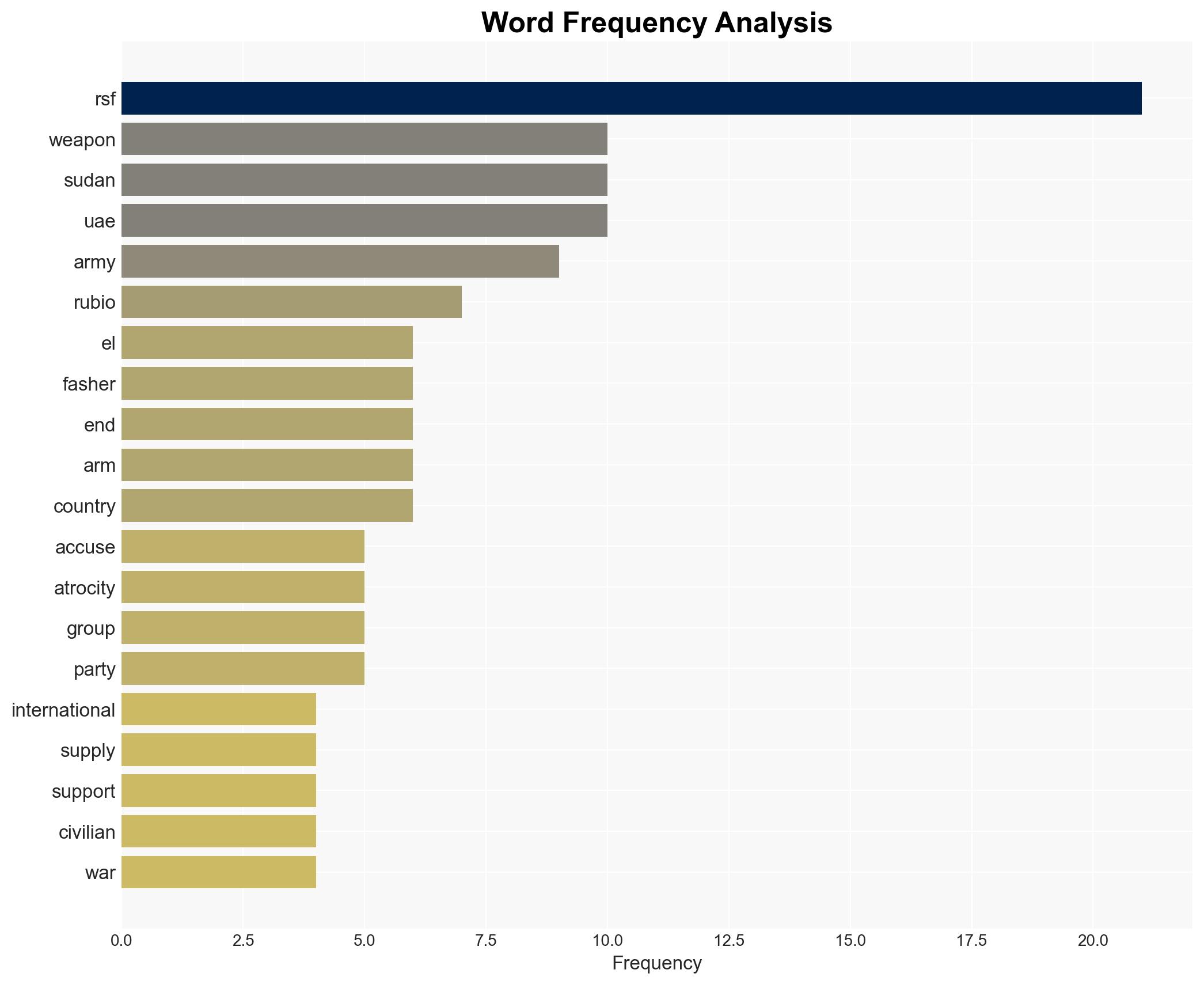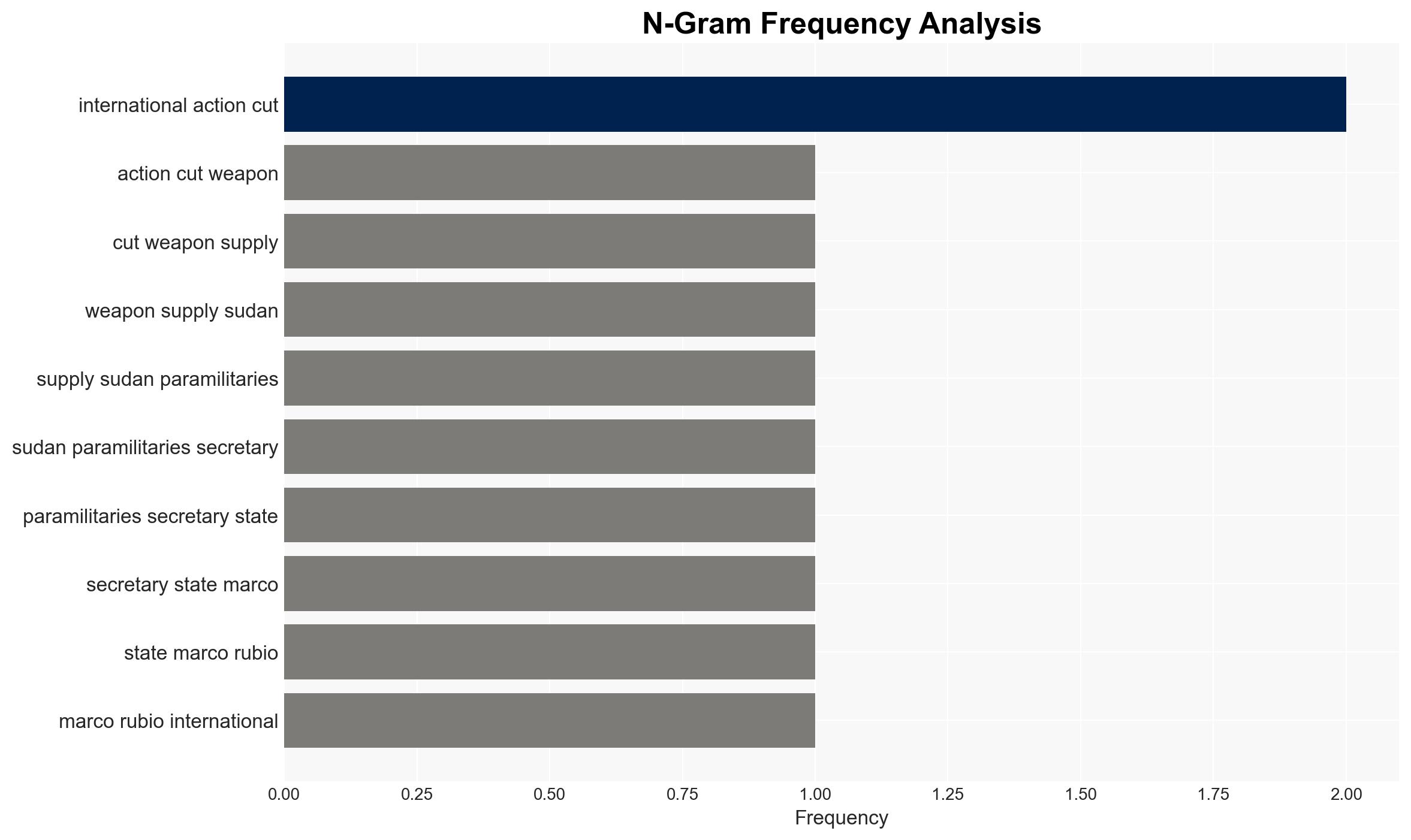US calls for international action to cut weapons supply to Sudan paramilitaries – BBC News
Published on: 2025-11-13
AI-powered OSINT brief from verified open sources. Automated NLP signal extraction with human verification. See our Methodology and Why WorldWideWatchers.
Intelligence Report: US calls for international action to cut weapons supply to Sudan paramilitaries – BBC News
1. BLUF (Bottom Line Up Front)
The most supported hypothesis is that the international community’s intervention to cut the weapons supply to Sudan’s Rapid Support Forces (RSF) is crucial to mitigating the humanitarian crisis and reducing violence. Confidence Level: Moderate. Recommended action includes diplomatic engagement with key regional players and leveraging international coalitions to enforce arms embargoes.
2. Competing Hypotheses
Hypothesis 1: The RSF’s access to weapons is primarily facilitated by external state actors, notably the UAE, which exacerbates the conflict in Sudan.
Hypothesis 2: The RSF’s weapons supply is largely independent, relying on a network of non-state actors and black-market channels, making international intervention less effective.
Hypothesis 1 is more likely due to the consistent allegations and evidence pointing towards state-level involvement, particularly from the UAE, as well as the RSF’s lack of domestic arms manufacturing capabilities.
3. Key Assumptions and Red Flags
Assumptions include the belief that cutting off weapons supply will significantly weaken RSF operations. A red flag is the potential bias in reports from involved parties, including the US and RSF, which may have strategic interests in shaping narratives. Deception indicators include RSF’s denial of external support despite evidence to the contrary.
4. Implications and Strategic Risks
Failure to address the weapons supply could lead to prolonged conflict, further destabilizing the region and exacerbating the humanitarian crisis. There is a risk of escalation involving neighboring countries and potential retaliatory actions by RSF against civilian populations. Economic sanctions could impact regional trade dynamics, and misinformation campaigns might be employed to sway international opinion.
5. Recommendations and Outlook
- Engage diplomatically with the UAE and other regional actors to negotiate a halt in arms supplies to RSF.
- Strengthen international coalitions to enforce arms embargoes and monitor compliance through satellite and intelligence sharing.
- Best-case scenario: Successful embargo leads to reduced RSF capabilities and a move towards ceasefire negotiations.
- Worst-case scenario: Continued arms flow results in intensified conflict and regional instability.
- Most-likely scenario: Partial success in cutting arms supply, leading to a protracted but less intense conflict.
6. Key Individuals and Entities
Marco Rubio (US Secretary of State), RSF (Rapid Support Forces), Sudanese Army, UAE (United Arab Emirates).
7. Thematic Tags
National Security Threats
Structured Analytic Techniques Applied
- Cognitive Bias Stress Test: Structured challenge to expose and correct biases.
- Bayesian Scenario Modeling: Use probabilistic forecasting for conflict trajectories or escalation likelihood.
- Network Influence Mapping: Map relationships between state and non-state actors for impact estimation.
Explore more:
National Security Threats Briefs ·
Daily Summary ·
Methodology





